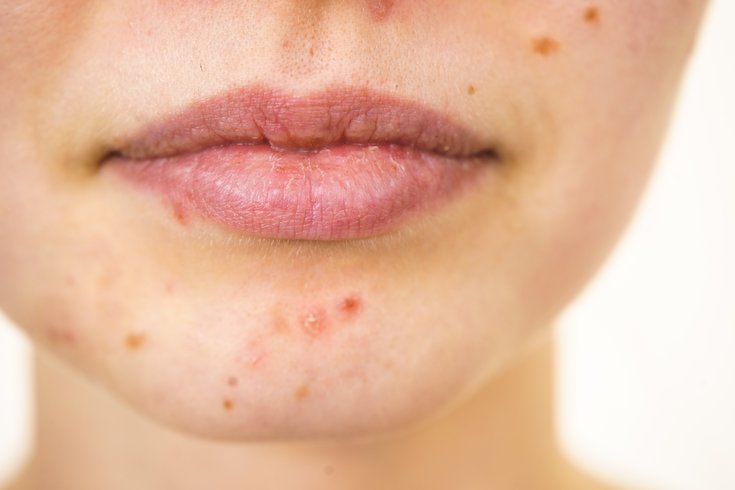
November 13, 2019
 Source/Image licensed from Ingram Image
Source/Image licensed from Ingram Image
More than 50% of adult women have some facial acne, according to the American Academy of Dermatology. Men also can develop acne as adults, but it is less common.
You survived the spotty skin of your teen years, so does that mean you never have to worry about acne again? Unfortunately, no.
The Journal of American Academy of Dermatology reports that 54% of adult women have some facial acne. It also can occur in adult men as well, but not as frequently.
Adult acne refers to the acne you get after the age of 25. The causes of acne are very similar at any age – oily skin, clogged pores, bacteria and inflammation.
But there are myriad other reasons acne can appear.
Hormones, stress, a woman's menstrual cycle, diet and even the hair and skin products also can play a role. Some studies have shown that dairy products and high-glycemic-index foods, which include white bread, bagels, cakes, doughnuts, and even some breakfast cereals, can contribute to an acne flare-up. Medications like corticosteroids, anabolic steroids and lithium also can make you more prone to breakouts.
"Acne often flares up in teenagers because the surge of hormones during puberty stimulates the sebaceous glands, causing excess oil production," according to the Mayo Clinic. "Hormone changes during midlife, particularly in women, can similarly affect the sebaceous glands, and that can lead to breakouts too."
Sebaceous glands are glands in the skin that produce oil.
The best ways to prevent an acne breakout is to take your makeup off before going to bed and to only buy skincare products and makeup that are "oil-free" or "non-comedogenic," according to Harvard Health. Also, be wary of any hair products that contain oil. And always wear sunscreen with at least SPF 30 – even on rainy and overcast days.
Once acne erupts on your skin, there are several options to treat it.
There is a wide array of over-the-counter medications you can try, but if none of them seem to be effective, you also can see a dermatologist for prescription-strength medications or other options that rely on light therapy or chemical peels.
When purchasing over-the-counter acne treatment options, stick with those that have benzoyl peroxide or salicylic acid in the ingredient list.
The Mayo Clinic warns against products that are marketed for adult acne. Their dermatology experts explain that "the ingredients in these products often are derived from plants, so their chemical structure differs from hormones produced in the human body. There's no scientific evidence that these products reduce adult acne."
Do many of your family members suffer frequently from acne breakouts? If so, you may have a genetic predisposition for it.
Sometimes acne can also be a sign of a more serious issue. If you have additional symptoms such as weight loss, hair loss or excess growth, or changes to your menstrual cycle, Harvard Health experts recommend that you talk to your doctor about further testing.